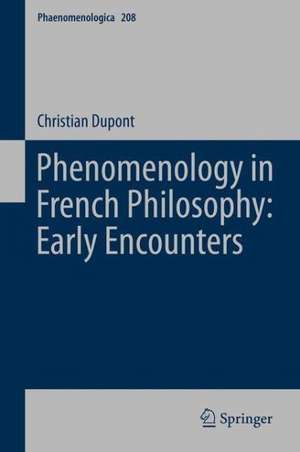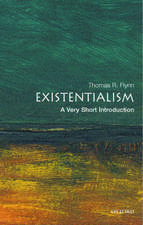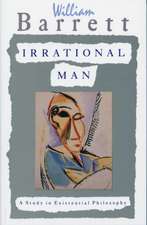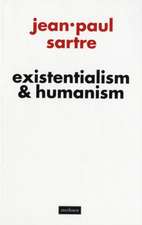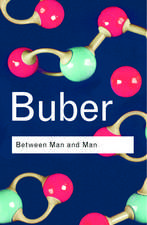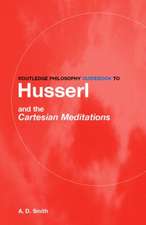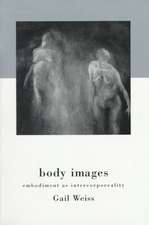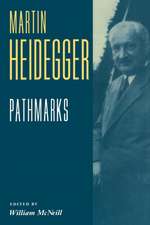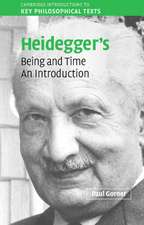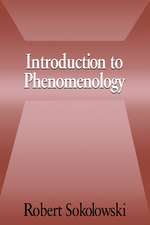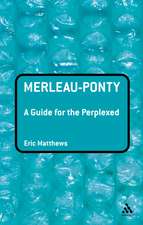Phenomenology in French Philosophy: Early Encounters: Phaenomenologica, cartea 208
Autor Christian Duponten Limba Engleză Hardback – 2 dec 2013
| Toate formatele și edițiile | Preț | Express |
|---|---|---|
| Paperback (1) | 375.06 lei 38-44 zile | |
| SPRINGER NETHERLANDS – 23 aug 2016 | 375.06 lei 38-44 zile | |
| Hardback (1) | 388.48 lei 38-44 zile | |
| SPRINGER NETHERLANDS – 2 dec 2013 | 388.48 lei 38-44 zile |
Din seria Phaenomenologica
-
 Preț: 690.19 lei
Preț: 690.19 lei - 20%
 Preț: 816.33 lei
Preț: 816.33 lei - 13%
 Preț: 478.40 lei
Preț: 478.40 lei - 20%
 Preț: 629.12 lei
Preț: 629.12 lei - 13%
 Preț: 491.46 lei
Preț: 491.46 lei - 13%
 Preț: 542.55 lei
Preț: 542.55 lei - 20%
 Preț: 553.67 lei
Preț: 553.67 lei -
 Preț: 690.38 lei
Preț: 690.38 lei - 15%
 Preț: 633.02 lei
Preț: 633.02 lei -
 Preț: 417.90 lei
Preț: 417.90 lei -
 Preț: 425.42 lei
Preț: 425.42 lei -
 Preț: 389.49 lei
Preț: 389.49 lei -
 Preț: 418.29 lei
Preț: 418.29 lei -
 Preț: 417.02 lei
Preț: 417.02 lei - 15%
 Preț: 577.72 lei
Preț: 577.72 lei - 15%
 Preț: 527.32 lei
Preț: 527.32 lei - 15%
 Preț: 636.80 lei
Preț: 636.80 lei - 18%
 Preț: 952.89 lei
Preț: 952.89 lei - 15%
 Preț: 643.65 lei
Preț: 643.65 lei - 18%
 Preț: 1225.48 lei
Preț: 1225.48 lei -
 Preț: 389.31 lei
Preț: 389.31 lei - 18%
 Preț: 1113.39 lei
Preț: 1113.39 lei - 18%
 Preț: 952.40 lei
Preț: 952.40 lei - 18%
 Preț: 1664.61 lei
Preț: 1664.61 lei - 18%
 Preț: 1551.73 lei
Preț: 1551.73 lei - 18%
 Preț: 1222.31 lei
Preț: 1222.31 lei - 18%
 Preț: 944.19 lei
Preț: 944.19 lei - 15%
 Preț: 642.51 lei
Preț: 642.51 lei - 18%
 Preț: 1112.78 lei
Preț: 1112.78 lei - 18%
 Preț: 891.80 lei
Preț: 891.80 lei - 18%
 Preț: 948.47 lei
Preț: 948.47 lei - 18%
 Preț: 1224.18 lei
Preț: 1224.18 lei - 18%
 Preț: 946.87 lei
Preț: 946.87 lei - 15%
 Preț: 578.84 lei
Preț: 578.84 lei - 15%
 Preț: 464.18 lei
Preț: 464.18 lei
Preț: 388.48 lei
Nou
Puncte Express: 583
Preț estimativ în valută:
74.36€ • 78.12$ • 62.49£
74.36€ • 78.12$ • 62.49£
Carte tipărită la comandă
Livrare economică 08-14 martie
Preluare comenzi: 021 569.72.76
Specificații
ISBN-13: 9789400746404
ISBN-10: 9400746407
Pagini: 352
Ilustrații: XI, 338 p.
Dimensiuni: 155 x 235 x 24 mm
Greutate: 0.67 kg
Ediția:2014
Editura: SPRINGER NETHERLANDS
Colecția Springer
Seria Phaenomenologica
Locul publicării:Dordrecht, Netherlands
ISBN-10: 9400746407
Pagini: 352
Ilustrații: XI, 338 p.
Dimensiuni: 155 x 235 x 24 mm
Greutate: 0.67 kg
Ediția:2014
Editura: SPRINGER NETHERLANDS
Colecția Springer
Seria Phaenomenologica
Locul publicării:Dordrecht, Netherlands
Public țintă
ResearchCuprins
PREFACE.- CHAPTER 1: INTRODUCTION- I. Occasion.- II. Contribution.- III. Methodology and Terminology.- A. Definition of Reception.- B. Definition of Phenomenology.- C. Definition of Religious Thought.- IV. Plan.- CHAPTER 2: PRECURSORS TO THE RECEPTION OF PHENOMENOLOGY IN FRANCE, 1889-1909.- I. Three Major Currents in French Philosophy at the End of the Nineteenth Century.- A. Positivism.- B. Idealism.- C Spiritualism.- D. Summary: Anticipations of Phenomenology in French Positivism, Idealism and Spiritualism.- II. Henri Bergson: Lived Duration and Intuition.- A. Bergson’s Original Insight.- B. Bergson’s Principal Themes: Duration and Intuition.- C. Bergson as a Precursor to Husserlian Phenomenology.- D. Bergson’s Influence on French Theologians.- III. Maurice Blondel: A Phenomenology of Action.- A. Blondel’s Original Insight.- B. Blondel’s Principal Theme: Action.- C. Blondel as a Precursor to Husserlian Phenomenology.- D. Blondel’s Influence on French Theologians.- IV. Conclusion: Bergson and Blondel as Precursors to the Reception of Husserlian Phenomenology in France.- CHAPTER 3: FOUR PHASES IN THE RECEPTION OF PHENOMENOLOGY IN FRENCH PHILOSOPHY, 1910-1939.- I. Léon Noël and Victor Delbos.- A. Léon Noël.- B. Victor Delbos.- C. Noël and Delbos as Interpreters of Phenomenology.- II. Lev Shestov and Jean Héring.- A. Lev Shestov.- B. Jean Héring.- C. Shestov’s Reply to Héring.- D. Héring’s Rebuttal to Shestov.- E. Shestov and Héring as Interpreters of Phenomenology.- III. Bernard Groethuysen and Georges Gurvitch.- A. Bernard Groethuysen.- B. Interlude: German Phenomenologists in France.- C. Georges Gurvitch.- D. Groethuysen and Gurvitch as Interpreters of Phenomenology.- IV. Emmanuel Levinas and Jean-Paul Sartre.- A. Emmanuel Levinas.- B. Jean-Paul Sartre.- C. Levinas and Sartre as Interpreters of Phenomenology.- V. Conclusion: Four Phases in the Reception of Phenomenology in FrenchPhilosophy, 1910-1939.- A. Phase One: Awareness of Husserl as a Critic of Psychologism.- B. Phase Two: Polemics Over Ideas and the Logos Essay.- C. Phase Three: Popularization of Phenomenology.- D. Phase Four: Original French Appropriations of Phenomenology.- E. Other Figures, Further Aspects.- CHAPTER 4: RECEPTIONS OF PHENOMENOLOGICAL INSIGHTS IN FRENCH RELIGIOUS THOUGHT, 1901-1929.- I. Édouard Le Roy.- A. His Life and Works.- B. Le Roy and Bergson.- C. Le Roy’s Application of Bergsonian Insights to Religious Thought.- D. Le Roy’s Contribution to the Theological Reception of Phenomenology.- II. Pierre Rousselot.- A. His Life and Works.- B. Rousselot and Blondel.- C. Rousselot’s Application of Blondelian Insights to Religious Thought.- D. Rousselot’s Contribution to the Theological Reception of Phenomenology.- CHAPTER 5: RECEPTIONS OF HUSSERLIAN PHENOMENOLOGY IN FRENCH RELIGIOUS THOUGHT, 1926-1939.- I. Jean Héring.- A. His Life and Works.- B. Phenomenology and the Philosophy of Religion.- C. Héring’s Application of Phenomenology to Religious Thought .- II. Gaston Rabeau.- A. His Life and Works.- B. Phenomenology and Theological Epistemology.- C. Rabeau’s Application of Phenomenology to Religious Thought.- III. Joseph Maréchal.- A. His Life and Works.- B. Phenomenology and the Critical Justification of Metaphysics.- C. Maréchal’s Application of Phenomenology to Religious Thought.- IV. Neo-Thomist Encounters with Phenomenology.- A. The Société Thomiste and the Journée d’Études.- B. Neo-Thomist Appraisals of Phenomenology V. Conclusion: Two Stages in the Reception of Phenomenology in French Religious Thought Prior to 1939.- A. Stage One: Integration of Bergsonian and Blondelian Insights, 1901-1929.- B. Stage Two: Applications and Appraisals of Phenomenology, 1926-1939.- CHAPTER 6: CONCLUSION.- I. Receptions of Phenomenology in French Academic Circles Prior to 1939.- II. Appropriations of Phenomenology by French Philosophers.- III.Appropriations of Phenomenology by French Religious Thinkers.- IV. French Receptions of Phenomenology since 1939.- Index.
Recenzii
From the reviews:
“Dupont’s book is a clear and readable account of a complex moment, and can serve as an introduction to French philosophy more generally in the first half of the twentieth century. It provides accessible surveys of the work of a number of important thinkers within and outside of the phenomenological tradition … . The book will thus be an aid for scholars, and it is written so that readers can dip in and read individual sections depending on their interest.” (Edward Baring, Notre Dame Philosophical Reviews, ndpr.nd.edu, 2014)
“Dupont’s book is a clear and readable account of a complex moment, and can serve as an introduction to French philosophy more generally in the first half of the twentieth century. It provides accessible surveys of the work of a number of important thinkers within and outside of the phenomenological tradition … . The book will thus be an aid for scholars, and it is written so that readers can dip in and read individual sections depending on their interest.” (Edward Baring, Notre Dame Philosophical Reviews, ndpr.nd.edu, 2014)
Notă biografică
Christian Y. Dupont received his doctorate in the history of Christianity from the Department of Theology at the University of Notre Dame in 1997. Phenomenology in French Philosophy: Early Encounters presents an edited version of his dissertation, “Receptions of Phenomenology in French Philosophy and Religious Thought, 1889-1939.” Dupont subsequently earned a master’s degree in information science from Indiana University and became curator for special collections at the University Libraries of Notre Dame. In 2003, he was appointed director of the Special Collections Research Center at Syracuse University, and in 2006, director of the Albert and Shirley Small Special Collections Library at the University of Virginia, where he co-edited, with Peter Onuf, Declaring Independence: The Origin and Influence of America’s Founding Document. In 2008, Dupont joined Atlas Systems, Inc., to develop and promote Aeon, an online software system for improving access and workflow management for special collections libraries and archives. His varied research interests and publications have mainly focused on the history and management of libraries and library collections, especially as the latter relate to the reception of Dante in America. With his wife, Silvia Dupont, he has also translated catalogues of major exhibitions of Italian Renaissance art in the United States. He is an active member of the American Library Association, the Bibliographical Society of America, the Dante Society of America, the North American Society for Early Phenomenology, and other academic and professional associations.
Textul de pe ultima copertă
This work investigates the early encounters of French philosophers and religious thinkers with the phenomenological philosophy of Edmund Husserl. Following an introductory chapter addressing context and methodology, Chapter 2 argues that Henri Bergson’s insights into lived duration and intuition and Maurice Blondel’s genetic description of action functioned as essential precursors to the French reception of phenomenology. Chapter 3 details the presentations of Husserl and his followers by three successive pairs of French academic philosophers: Léon Noël and Victor Delbos, Lev Shestov and Jean Hering, and Bernard Groethuysen and Georges Gurvitch. Chapter 4 then explores the appropriation of Bergsonian and Blondelian phenomenological insights by Catholic theologians Édouard Le Roy and Pierre Rousselot. Chapter 5 examines applications and critiques of phenomenology by French religious philosophers, including Jean Hering, Joseph Maréchal, and neo-Thomists like Jacques Maritain. A concluding chapter expounds the principal finding that philosophical and theological receptions of phenomenology in France prior to 1939 proceeded independently due to differences in how Bergson and Blondel were perceived by French philosophers and religious thinkers and their respective orientations to the Cartesian and Aristotelian/Thomist intellectual traditions.
Caracteristici
Only comprehensive account of how Husserlian phenomenology was introduced in France Complements other histories of phenomenology, including Spiegelberg's "Phenomenological Movement" Distinguishes receptions of phenomenology among academic philosophers and religious thinkers?
